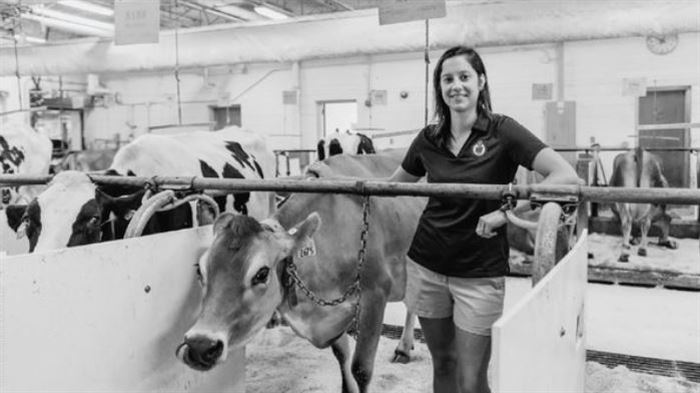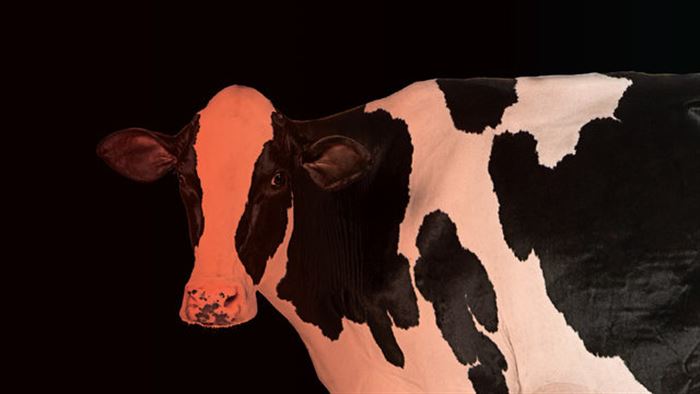7.20.17 | Madison Magazine | Maggie Ginsberg | Original Publication

Two months after mammary gland physiologist Laura Hernandez arrived at UW–Madison in 2011 to work on making dairy cows healthier, her daughter was born. Hernandez’s work analyzing the role of serotonin in bovine lactation was already well underway, and her fascination with lactation itself (the way it overtakes and dominates a woman’s entire system) was already established when she experienced the biological phenomenon for herself. With only nine days off of work, Hernandez juggled a demanding research and teaching schedule with seven months of breastfeeding her newborn.
“Maternal health always had been a passion,” she says, “but that just took it to the next level.”
Hernandez discovered firsthand that nursing is hard on women, but researchers had already established that pregnancy and lactating are particularly hard on her bones. A developing fetus drains 250 milligrams of calcium every day from its mother’s bones throughout the third trimester alone. In only six short months of nursing, a woman can lose 6 to 10 percent of her bone mass, leading to significant problems as she ages, such as osteoporosis. But what researchers didn’t know, and what Hernandez discovered through her WARF-patented method of manipulating serotonin to battle milk fever in dairy cows, is that selective serotonin reuptake inhibitors, or SSRIs, taken by women to manage depression, also rapidly exacerbate calcium loss. This is a one-two punch to maternal health for the 12 percent of pregnant and lactating women who take SSRIs, which Hernandez ultimately hopes to prevent, possibly with high doses of folic acid.
While Hernandez’s ongoing work will ultimately provide Wisconsin’s dairy farmers with tools to manage milk fever in their herds (a potentially fatal disease also known as hypocalcaemia affecting up to 10 percent of all dairy cows), she’s equally thrilled to take on this parallel line of research that could help human mothers as well.

“The great thing about Wisconsin is there’s all these amazing scientists, and little pieces match up, and everyone is willing to bridge those gaps—and it’s part of why I stayed,” says Hernandez, who turned down a position at Cornell University. She cites collaborations with the veterinary school, prostate cancer researchers, UW–Madison researcher Christopher Coe (who works with primates and postpartum depression) and UW Health’s clinical professor Ann Eglash (co-founder of the Academy of Breastfeeding Medicine) as just a handful of examples of what can be done in this spirit of collaboration.
“It really is the Wisconsin Idea, you know?” says Hernandez. “You find the things that match up and you work together to try to put the pieces together, and you’re not in this little isolated bubble.”